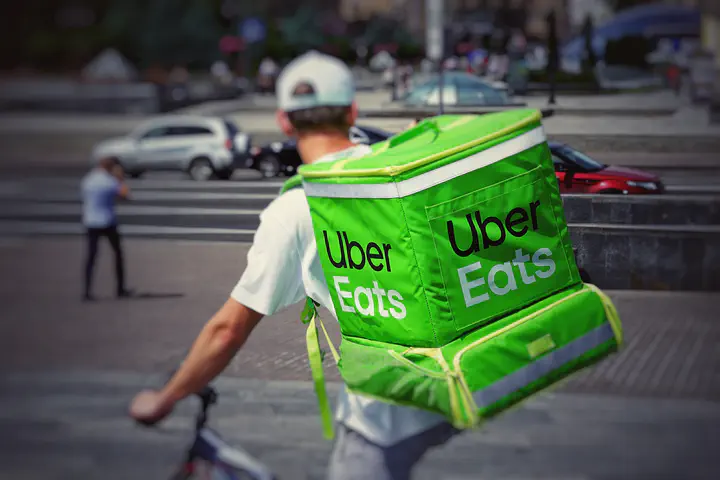Policy Evaluation: Online Takeaways
Making takeaway food choices more sustainable: The impact of behaviourally informed interventions on sustainable food choices
 Photo by Robert Anasch on Unsplash
Photo by Robert Anasch on Unsplash
Delivery food apps, such as Deliveroo or UberEats, have become increasingly popular in recent years, with projections suggesting that up to 100 million people will be using them across Europe by 2024 (Statista 2022). These apps have made it easier than ever before to have meals delivered directly to our homes, providing a convenient and quick option for busy individuals. Food delivery services have substantial untapped potential when it comes to promoting healthier and more sustainable eating habits among consumers. By thoughtfully designing digitial food choice settings, we can empower individuals to make conscious choices that benefit both their well-being and the environment.
This study empirically tests the effectiveness of different interventions to reduce the carbon footprint of food choices on food-delivery apps, using an incentive-compatible online randomised controlled trial with 4008 participants. The experiment used an interactive web platform that mimics popular online food delivery platforms (such as JustEat) and included three treatment conditions: a sign-posted meat tax, a carbon footprint label, and a choice architecture intervention, which changed the order of the menu so that the lowest carbon-impact restaurants and dishes were presented first. Results show that only the choice architecture nudge significantly reduced the average meal carbon footprint by 0.3 Kg/CO2e per order (12%), driven by a 5.6 percentage point (13%) reduction in high-carbon meal choices. Moreover, we find evidence of significant health and well-being co-benefits. Menu repositioning resulted in the average meal order being of greater nutritional value and containing fewer calories, whilst significantly increasing self-reported satisfaction with the meal choice. Simple back-of-the-envelope calculations suggest that menu repositioning would be a highly cost-effective policy instrument if implemented at scale, with the return on investment expected to be in the range of £1.28 to £3.85 per metric ton of avoided CO2 emissions, depending on implementation costs.
You can now read the full article by clicking on ‘PDF’ above.
Significance
Encouraging healthy and sustainable diets is a major priority for climate and health policies. Food delivery platforms have grown in importance in the past years, with steep growth rates also in the UK. Digital food order platforms offer unique opportunities to design interfaces that encourage customers to choose meals that are healthy and have a smaller carbon footprint. We conducted an incentivised experiment on a simulated food delivery app to test three potential food policy interventions, aimed at encouraging more sustainable diets: labels, taxes, and putting the most sustainable option on top of the menu. We find that repositioning menus in order of sustainability is highly effective in encouraging more sustainable and healthier food choices without compromising customer satisfaction. We estimate that menu repositioning would be a highly cost-effective policy instrument to promote low-carbon food choices.